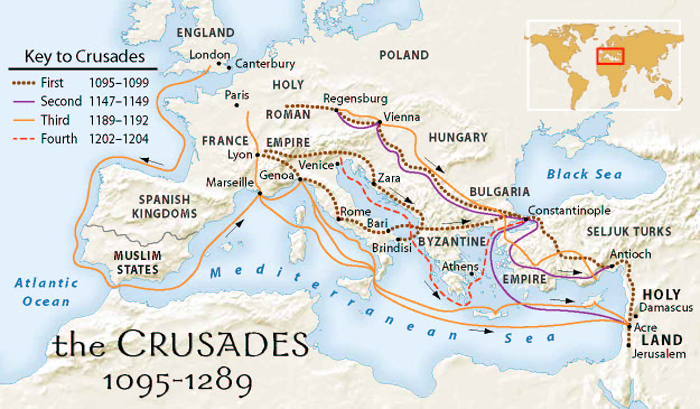Beginning in 1096, some Christian Europeans heeded the call of the papacy to launch a series of “holy wars” aimed at gaining control of Jerusalem from the Muslim Arabs and Seljuk Turks. In all, eight crusades were carried out. Jerusalem fell to the Christians in 1099, partly due to the disarray among Muslims. It took Muslims nearly half a century to respond effectively with their own call for defensive jihad, which required fighting against the Crusaders. Under the leadership of Salah al-Din, the Muslims effectively ended the Christian hold on the Holy Land in 1187, shortly after which Jerusalem was restored to Muslim control. It would be another 100 years, however, before the last Christian strongholds (Tripoli and Acre) fell to the Muslims. In general, the Muslims considered the Crusades to be an invasion by European outsiders, and history indicates that the Europeans treated Muslims and Jews much more harshly in comparison to Muslim treatment of Christians. The Christian sacking of Jerusalem and the massacre of its Muslim and Jewish residents during the first Crusade are often remembered as tragic historical examples of religious intolerance.
